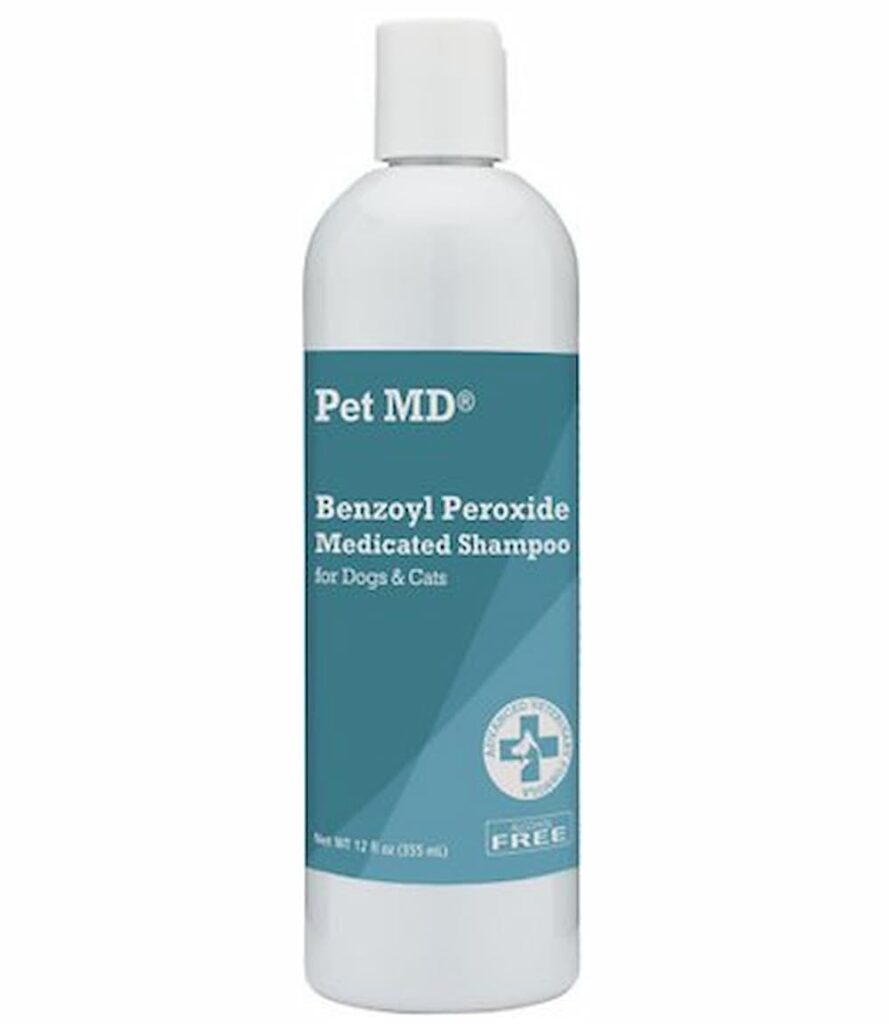Over the past few years, natural remedies have been becoming more popular amongst pet parents. One of the common natural remedies used by people is apple cider vinegar and many have now started using it for their pets too. Apple cider vinegar for dogs is touted to have many health benefits ranging from weight reduction to helping with itchy skin and even flea control.
Apple cider vinegar is made through the process of fermenting apples. The fermentation process results in an acidic vinegar that contains acetic acid, as well as some lactic, citric, and malic acids. It works as a pH balancer and digestive aid in the body.
Apple cider vinegar has been traced back all the way to 400 B.C. with Hippocrates using it for common ailments like the cold. However, there are not a lot of scientific studies that confirm these benefits, but numerous anecdotal reports show positive health results for people and their dogs.
What Does Folliculitis Look Like On Dogs
Folliculitis may develop in a small area of skin and then spread to a broader scope, sometimes covering the whole dog’s body. Folliculitis starts as a small, raised, red lump on the skin around a hair follicle. These are called papules and have a similar appearance to acne in people.
If secondary infection occurs, this papule may fill with pus and form a whitehead or pustule. Eventually, pustules burst open, resulting in a crusty, flaky lesion around the hair follicle called an epidermal collarette. If the skin around the hair follicles has been inflamed for some time, it may appear red, thickened (like the appearance of an elephant’s skin), or become darker or hyperpigmented.

Signs of folliculitis in dogs may include:
Yes. An ingrown hair is when the hair shaft grows in the wrong direction out of the hair follicle, causing the hair to keep growing but becoming trapped beneath the skin. A dog ingrown hair or an ingrown dog whisker most commonly occurs after clipping or grooming. They look like small, red, inflamed lumps on the skin and may appear on the body, paws, or between your dog’s toes.
They may be painful or itchy, particularly if the hair follicle expands with fluid or pus and results in an ingrown hair cyst in your dog. Some breeds of dogs are more prone to ingrown hairs, such as the Chinese Shar-Pei and Poodles. A dog ingrown hair cyst shouldn’t be squeezed or picked, instead, use a hot compress such as a towel or cotton wool soaked in warm water to open the cyst and draw the material out gently.
If you’re concerned your dog has folliculitis or another skin condition, it’s best to seek veterinary advice. A veterinary surgeon will examine your dog’s skin and take a history of possible allergic triggers or changes to your dog’s normal routine to look for causes of your dog’s folliculitis. Sometimes, further testing is necessary, particularly if your dog has recurring folliculitis or if it’s not resolved with treatment. Further diagnostic tests might include taking a sample of the skin to examine under a microscope, testing for parasites such as mites, taking a swab for bacterial culture, and blood tests to assess organ function and hormone levels.
11 Ways Dog Lovers Can Use ACV
So, how much can apple cider vinegar benefit your dog? Quite a bit, actually, provided you are sensible about your expectations. Apple cider vinegar may help dogs with:
Apple cider vinegar is made from apples/apple pectin. All vinegars are made from a liquid containing sugar, so apple vinegar begins as water and apples. When exposed to air, yeasts can grow, which cause the sugar to ferment and become alcohol. As it continues to ferment, natural (or added) acetic acid bacteria turn the alcohol into acetic acid, which is the main component of vinegar. Acetic acid is what gives vinegar its taste, smell and benefits. The word “vinegar” means “sour wine”, and indeed, red wine vinegar is simply red wine that’s been acetified.
Best Dog Dandruff Control Shampoo

Humans suffer from an itchy dry scalp caused by seborrhea, or dandruff, but so do dogs. Identifying dandruff on your dog is pretty simple because you’ll see flakes on his skin and coat. Once your vet has ruled out that the dandruff is not caused by a secondary, deeper issue, you’ll want to get rid of it. For mild cases of dandruff associated with minor itching and no open sores or wounds, regular use of a soap-free shampoo can help.
Highlights
Things to Consider
FAQ
Can apple cider vinegar help folliculitis in dogs?
Does apple cider vinegar cure folliculitis?
How can I treat my dogs folliculitis at home?
If your dog has folliculitis, you should apply medication to their skin to get rid of the infection. Applying a surface medication will eliminate organisms and debris from the skin’s surface. This is usually done with an antimicrobial shampoo that is applied to the coat.